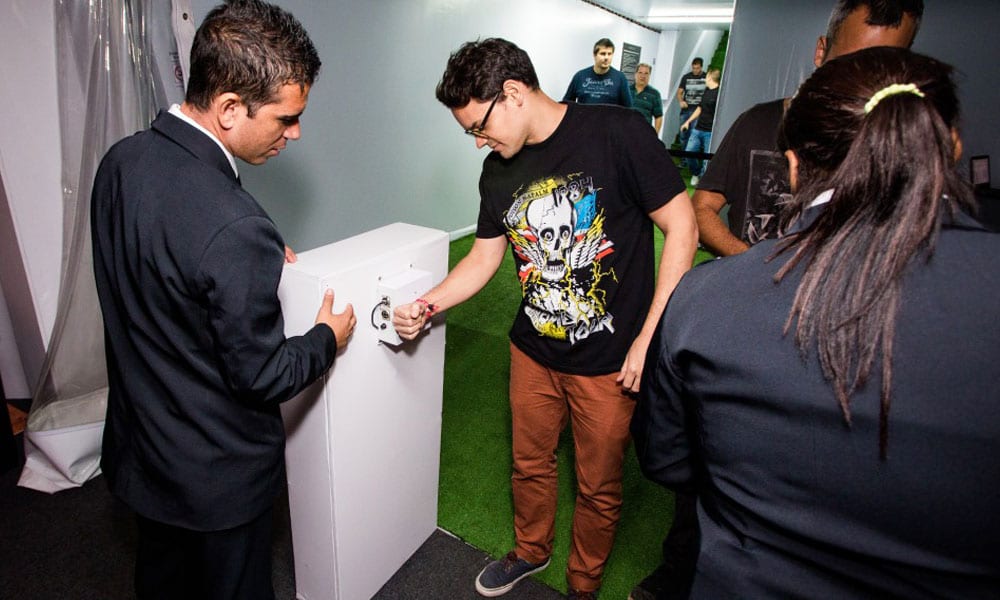Ticket fraud at festivals is costing fans millions of hard-earned dollars in losses, and in today’s market, digital tickets have become an integral part of any event’s ticket sales. So integral in fact, that two-thirds of tickets sold online are digital, a comparatively large figure to other online industries, and one that attests to how rapidly the market has matured. And it’s growing. This year, the e-commerce fraud prevention firm Riskified estimates the global online event ticket market value at $30 billion annually, and in the US, lost revenue is expected to exceed $10 billion. Riskified have found that ticket fraud at festivals is more common than at any other event, with festival passes running four times more likely to be bought using fraudulent means than tickets to sporting events due to their appeal with younger, more tech-savvy crowds. But protecting yourself is easier than you think. By being aware of these key points you diminish your risk of being affected by ticket fraud at festivals, as we explain as we break down Riskfield’s excellent report below.
Single Tickets Aren’t as Safe as You Think
You might think large orders for multiple tickets carry the most risk because there are more tickets to resell. But “single-ticket orders are 70% more likely to turn out to be fraud compared to multiple-ticket baskets,” Riskfield states.

Fraudsters are actually hoping to stay under the radar of fraud teams this way. And their methods—scanning message boards for desperate fans hoping to snag a sold-out seat—mean selling high-priced single tickets at “bargain” prices is easier to pull off. Thankfully, single tickets only make up 27% of online orders, and Riskfield advises that “merchants should still be approving 9 out of 10 orders” for single-ticket carts.
Higher Prices Mean Higher Risks
Orders worth over $1000 are “four times more likely” to be fraudulent than orders valued at $200 or less, Riskfield notes. This is a ticket fraud risk that unsurprisingly increases if it’s a single-ticket order, meaning single ticket orders worth $500 or more see their approval rate fall to 82%. That doesn’t mean expensive orders for multiple tickets are perfectly safe, however, as “online orders worth over $1000 are four times more likely to end up as fraud compared to orders valued at $200 or less.” As the value of the order rises, so does the risk.
Early Birds do Catch the Worm
Thankfully, the earlier purchases are made, the safer they are. And they’re usually worth more too. “Orders made 60 days prior to an event are—on average—worth over twice as much as orders placed the day of,” Riskfield notes. That means the closer you get to the event day, the more your team needs to watch out for ticket fraud. And when the big day comes, fraudsters are “five times more likely” to make bad purchases than an order made 60 days before.
Return Customers are Key
If customers who buy tickets the day of the event are especially risky, return customers are especially safe. But nearly 80% of online ticket orders are made by first-time customers. That’s because consumers are looking for the best bang for their buck, and aren’t overly concerned with returning to a specific merchant. But return customers are 30% less likely to commit ticket fraud and are likely to keep coming back if they’re happy. So recognizing things like names, addresses, telephone numbers, email addresses, IPs, and payment details are key for identifying return customers, and for potentially flagging their accounts if you think they have been taken over by a fraudster.
Technology is a Friend and Foe
Certain browsers and proxy servers can signify risky shoppers. But not always. Sometimes customers have legitimate reasons to mask their IP, like using parts of the web not available in their country, and so shouldn’t be auto-declined. Instead, your fraud team should review them in context. And while browser choice may seem insignificant, the open-source Firefox is slightly more risky than IE, Chrome or Safari. Though Riskified still approves 90% of orders made from Firefox browsers. Having replaced physical addresses, email addresses are now crucial to identifying the legitimacy of shoppers. How old is the email address? If it’s over three years old, the approval rate is high. But less than 3 months old, and the approval rate drops to 61% because fraudsters often hide behind throwaway accounts. You can also see if the customer’s first or last name matches up with a part or all of their address, as those without are more than 10% riskier.

On the friendlier side, event technology can help reduce ticket fraud at your event. Intellitix Access Control stamps out ticket fraud by making forgery-proof credentials, and eliminating common types of ticket fraud like “pass-backs” and using passes from a different area or day. Intellitix actually stopped 7,028 unauthorized entries at one event! Read the case study about how Intellitix helped San Diego Comic-Con win the epic battle against ticket fraud by utilizing access control.

